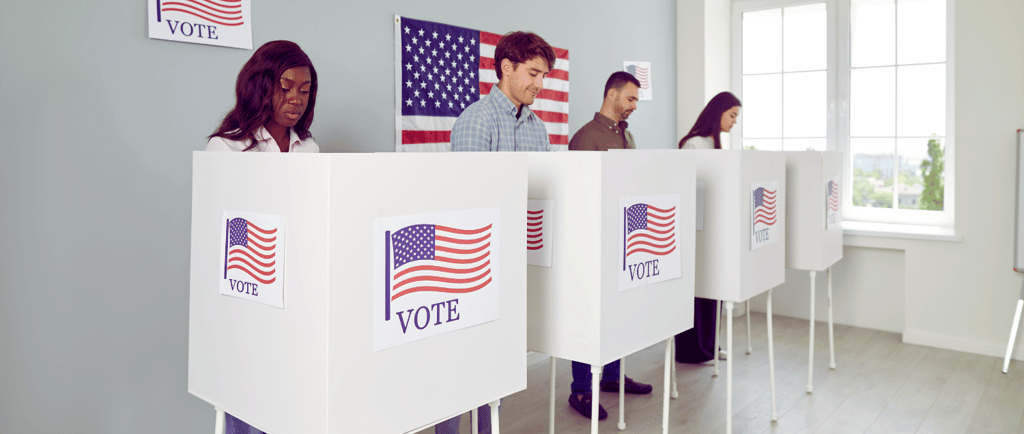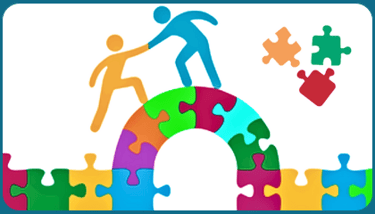Navigating the Middle Ground: Finding Sanity in a Divisive World
Avoiding the worse choice or the lesser of two evils process will require more of us together!
SOCIAL CONTRACTS
Mark Boatwright-Frost
10/30/20245 min read


Understanding the Extremes: A Contextual Framework
The concept of extremes in political and social discourse is critical for comprehending the current state of polarization that permeates various aspects of society. Extremism can be characterized by rigid ideologies that reject moderate views, often resulting in an “us versus them” mentality. This black-and-white thinking is prevalent at both ends of the political spectrum, where individuals are defined not by nuanced beliefs but by their staunch allegiance to specific ideologies. Such polarization distorts the landscape of discourse, leading to a heightened sense of division and contention among diverse groups.
Historically, periods of heightened tension in governance and societal interactions often reflect significant ideological divides. For instance, the Civil Rights Movement in the 1960s showcased a society grappling with extreme viewpoints regarding race and equality. Contemporary examples include the rise of populism, which has reshaped political landscapes globally. These movements often thrive on amplifying grievances, utilizing social media platforms to disseminate polarizing theories more rapidly than ever before. This acceleration has diluted the capacity for constructive dialogue, as individuals are increasingly drawn to echo chambers that reinforce their beliefs rather than challenge them.
The upcoming election cycle exacerbates this phenomenon, as political campaigns increasingly exploit social divisions to galvanize supporters. This strategic maneuver results in an exacerbation of mistrust between competing ideologies, creating an environment where cooperation becomes challenging. Moreover, the historical precedent of polarization suggests that such divisiveness may not be a transient phase but a potential hallmark of contemporary society. By acknowledging the evolution of these extremes and their social repercussions, we can foster a better understanding of the current political climate. Through this lens, it becomes vital to navigate the middle ground, promoting dialogue that brings together diverse perspectives in search of common ground and understanding.
The Role of Critical Thinking in Achieving Sanity
In an era characterized by rapid "information" dissemination and pervasive media messages, the importance of critical thinking has never been more pronounced. Critical thinking is the systematic evaluation of information, arguments, and evidence, allowing individuals to form well-founded conclusions rather than relying on biases or emotional responses. This analytical skill is essential for discerning truth in a landscape fraught with misinformation and propaganda, which can easily lead to confusion and division.
Furthermore, discernment serves as a critical tool in our daily decision-making processes. It enables individuals to differentiate between credible information and unsubstantiated claims, ultimately fostering a more informed and rational public discourse. The ability to filter information is crucial as it helps individuals recognize the agendas behind the messages being presented, thus reducing susceptibility to manipulation. In these turbulent times, cultivating such skills is imperative for retaining sanity and achieving a balanced perspective on societal issues.
To strengthen one's critical thinking faculties, several practical strategies can be employed. Firstly, engaging in reflective questioning can enhance understanding. This involves asking oneself about the source of information, the evidence backing it, and the potential biases that may influence its presentation. Additionally, developing media literacy is vital; it equips individuals to analyze various forms of media critically, recognizing persuasive techniques and identifying faulty reasoning.
Moreover, adopting a mindset of open-mindedness encourages dialogue with diverse viewpoints, fostering a more comprehensive understanding of complex issues. By practicing these strategies, individuals not only enhance their own critical thinking skills but contribute positively to their political and social environments. Ultimately, an investment in critical thinking is essential for navigating the overwhelming tide of information, ensuring that sanity prevails amid societal divisiveness.
Community and Collective Action: The Power of 'We the People'
In an increasingly divided world, the importance of community and collective action cannot be overstated. The phrase "we the people" embodies the strength and ability of individuals to come together and effect meaningful change. History offers numerous examples where collective efforts have overcome formidable societal challenges. Movements such as the Civil Rights Movement or recent climate action campaigns demonstrate how the united voices of community members can transcend differences and tackle pressing issues effectively.
The power inherent in community organizing lies in its ability to galvanize diverse individuals around a common cause. Successful movements often depend on grassroots efforts, where local organizations mobilize individuals, fostering a sense of belonging and shared ownership. By providing a platform for dialogue and collaboration, community gatherings create spaces where differing perspectives are heard and valued, facilitating the development of comprehensive solutions. Practitioners in community building emphasize the importance of inclusivity, ensuring that marginalized voices are empowered and recognized in the decision-making process.
Moreover, the rise of digital communication tools has enabled communities to transcend geographical barriers, allowing collective action to flourish on a larger scale. Social media platforms and community forums serve as powerful tools for connecting individuals and sharing resources, ideas, and strategies. These platforms have proven essential in amplifying movements, enabling people to mobilize quickly and effectively around social justice, environmental concerns, and various other issues that affect their communities. This interconnectedness enhances the collective capacity of "we the people" to drive change.
Ultimately, successful community involvement hinges on fostering collaboration and engagement. Initiatives focused on relationship building, establishing trust, and facilitating open communication can significantly impact a community's ability to mobilize effectively. By recognizing the power of collective action, we can harness the strengths of diverse individuals, driving meaningful change in our society.
Moving Forward: Solutions for a More Balanced Discourse
In an increasingly polarized society, fostering a more balanced discourse becomes essential for the health of our democratic systems and communal relationships. One vital approach is promoting active listening. Individuals should prioritize understanding different perspectives, even those that contrast sharply with their own. By engaging in conversations with an open mind and a willingness to learn, we can create fertile ground for mutual respect and understanding.
Furthermore, educational institutions play a crucial role in addressing systemic issues that contribute to polarization. Incorporating curriculum components that emphasize critical thinking and media literacy can help students discern information and engage thoughtfully with diverse viewpoints. Workshops aimed at enhancing conflict resolution skills should also be implemented to equip individuals with the tools necessary to navigate contentious topics constructively.
Community-building initiatives can foster environments of inclusivity and respect. Organizing local forums and discussion groups that encourage dialogue on contentious issues allows individuals to express their viewpoints while actively listening to others. Establishing norms around civility and respect during these discussions can increase trust and reduce hostility.
Proactive citizenship during elections is another critical element. Voters can engage constructively by advocating for candidates that prioritize dialogue and inclusivity in their platforms. Additionally, individuals may consider volunteering for non-partisan organizations that promote election integrity and community engagement. By stepping into roles that foster engagement, citizens can re-establish a sense of sanity and shared purpose amidst division.
In summary, the journey towards balanced discourse requires collective effort and commitment. By actively listening, educating future generations, fostering community dialogue, and engaging constructively in the political process, we can reclaim productive conversations and rebuild a more respectful society. Each individual’s contributions can lead to a more harmonious world, one that values understanding and collaboration over division.
Thoughts on a human future... ~Mark Boatwright-Frost
The Resilient Community Movement
In today's ever-changing world, the importance of fostering resilience within neighborhoods and communities cannot be overstated. By facilitating connections among residents, we empower individuals to share their stories and experiences, creating a strong support network. This collaborative spirit not only enhances the well-being of community members but also amplifies their voices, ensuring that their unique human needs are recognized and addressed.
Contact and Connect
info@reseco.org
© 2024. All rights reserved.
